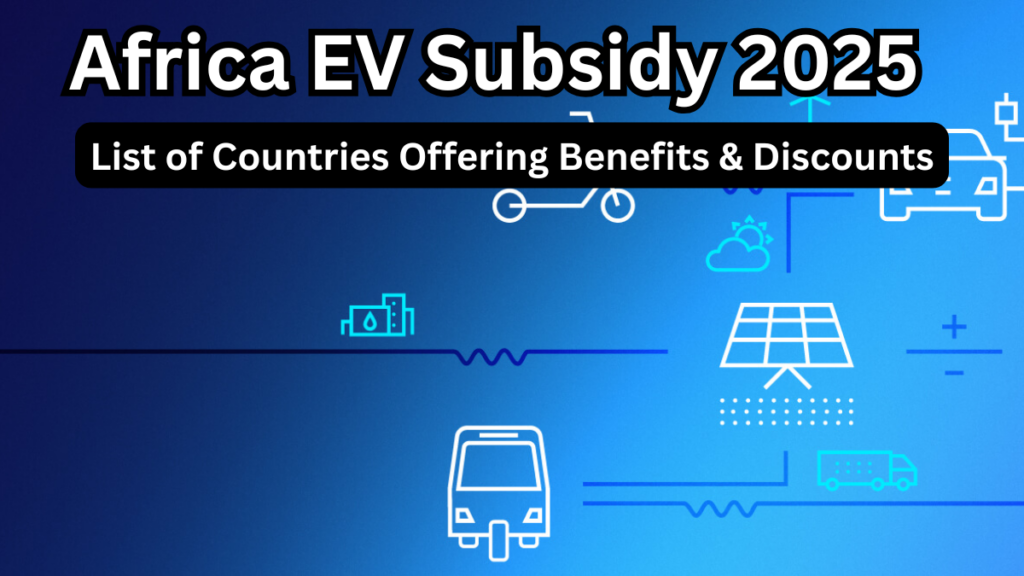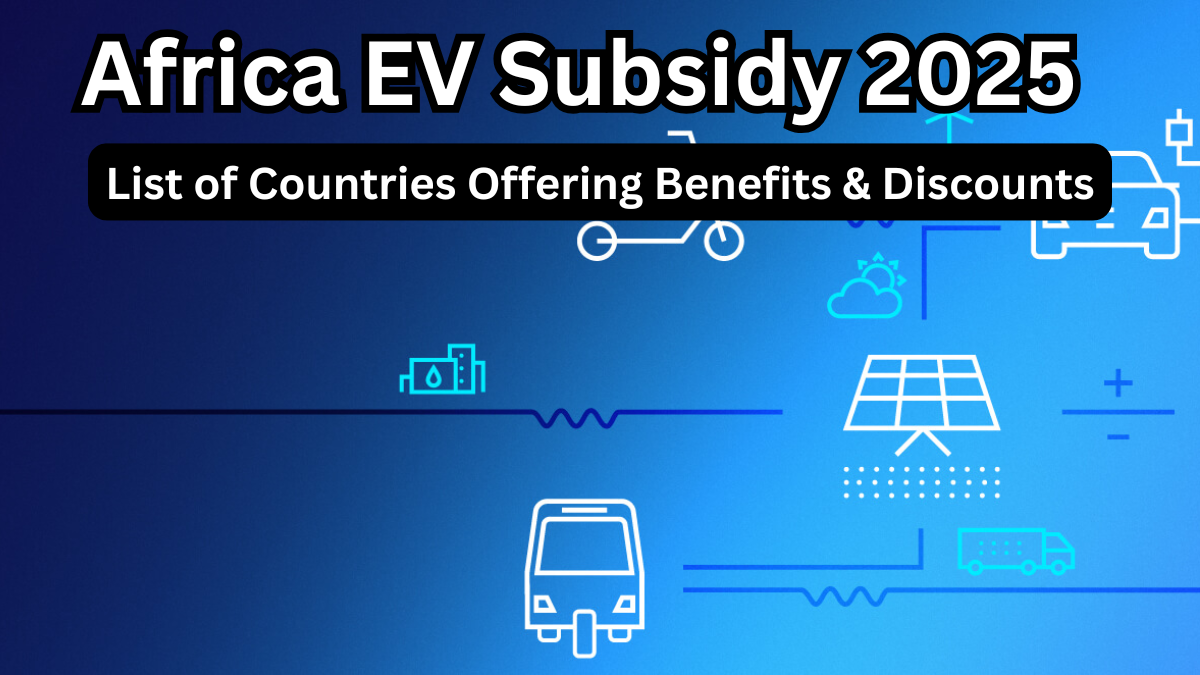As electric vehicles gain popularity across the globe, Africa is making steady progress in adopting clean and green mobility solutions. The EV Subsidy Africa 2025 initiative is paving the way for more affordable and accessible electric vehicles, with several countries offering incentives, tax relief, and infrastructure support.
The following guide outlines the top countries participating in this transition and what their Electric Vehicle Scheme includes.

Why Africa Is Prioritizing EV Subsidies
African governments are increasingly aware of the benefits of transitioning to electric mobility. These include:
-
Lower carbon emissions and cleaner air
-
Reduced dependency on imported fossil fuels
-
Development of local EV production industries
-
Creation of green jobs and a sustainable transport future
The EV Subsidy Africa 2025 program is designed to make electric vehicles a realistic and appealing option for both consumers and businesses.
Countries Leading the EV Subsidy Push in Africa
South Africa
South Africa is taking serious steps to become a hub for EV production and usage.
| Subsidy Type | Details |
|---|---|
| Import Duty Exemption | Lower or removed import duties on EVs |
| Tax Rebates | Tax savings of up to 20% on electric car purchases |
| Charging Infrastructure | Joint ventures to expand EV charging stations |
Egypt
Egypt’s Electric Vehicle Scheme is one of the most ambitious on the continent.
| Subsidy Type | Details |
|---|---|
| Purchase Incentives | Direct discounts of up to $5,000 on new EVs |
| Battery Production Aid | Incentives for local battery assembly and tech |
| Fleet Electrification | Government fleets transitioning to EVs |
Kenya
Kenya is focusing on mass electric transport for both urban and rural communities.
| Subsidy Type | Details |
|---|---|
| VAT & Duty Waivers | Full exemption on VAT and import duties for EVs |
| Infrastructure Support | Expansion of nationwide EV charging networks |
| SME Support | Grants for local EV startups and e-mobility projects |
Morocco
Morocco is blending its renewable energy goals with EV adoption efforts.
| Subsidy Type | Details |
|---|---|
| Tax Relief | No registration tax for electric vehicles |
| Local Manufacturing Aid | Incentives for Moroccan EV assembly plants |
| Clean Energy Integration | EV subsidies tied to solar and wind energy systems |
Highlights of EV Subsidy Africa 2025
-
Direct financial support for purchasing EVs
-
Tax exemptions on imports and registration
-
Government support for local EV production
-
Investments in public EV charging infrastructure
These features make the Electric Vehicle Scheme a forward-thinking approach to transforming the transport landscape in Africa.
Current Challenges in Adoption
Despite these efforts, some hurdles remain:
-
High initial cost of EVs compared to fuel vehicles
-
Limited availability of charging points in rural areas
-
Lack of consumer awareness and trust
-
Uneven policy implementation across countries
However, the EV Subsidy Africa 2025 initiative continues to tackle these issues through phased development and cross-sector collaboration.
FAQs
Q1: Which African countries offer the most generous EV subsidies in 2025?
Egypt and South Africa are leading the way, offering a combination of purchase incentives, tax waivers, and infrastructure support under the EV Subsidy Africa 2025 plan.
Q2: Can commercial vehicle buyers benefit from the Electric Vehicle Scheme?
Yes, fleet owners, delivery services, and taxi operators are eligible for tax reductions and infrastructure support in many countries under the Electric Vehicle Scheme.
Q3: Are two- and three-wheeled EVs also subsidized?
Definitely. Kenya and Rwanda are supporting electric bikes and tuk-tuks as part of their EV transformation efforts, especially for public transport and small businesses.
Q4: How can individuals apply for EV benefits in their country?
You typically need to purchase from approved EV dealers and apply through government transportation departments. Official portals and registered distributors often handle the paperwork.
Final Thoughts
The EV Subsidy Africa 2025 movement reflects Africa’s growing commitment to sustainable transportation. By backing Electric Vehicle Schemes, governments are not only promoting clean mobility but also boosting innovation, energy independence, and economic growth. While challenges persist, the road ahead looks promising—and electric.
Click here to learn more
Sachin is a dedicated writer specializing in education, career, and recruitment topics, delivering clear and actionable insights to empower readers.
